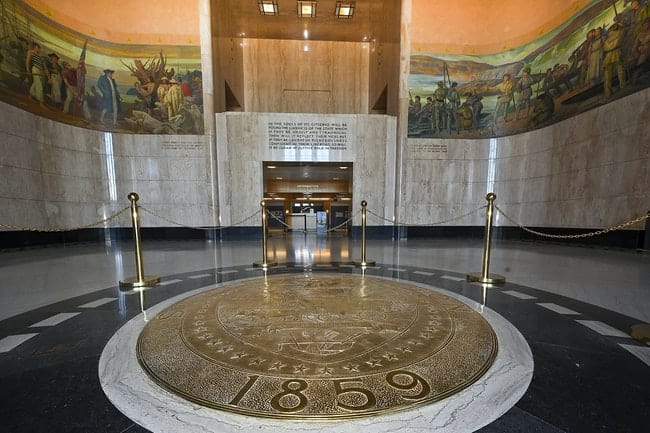As global temperatures continue to rise, climate change is having a profound impact on the world’s ecosystems and economies. Its effects are already being felt in the form of more frequent and severe natural disasters, rising sea levels, and increased heat waves. As such, it is imperative that we take action to address the root causes of climate change and mitigate its impact.
In Oregon, lawmakers and activists have been working together to introduce legislation aimed at reducing the state’s carbon emissions and promoting clean energy. Two initiatives that have garnered particular attention are Building Resilience and Community Resilience Hubs. These campaigns focus on increasing community resilience and addressing climate-related challenges.
Building Resilience seeks to build resilient communities by increasing their capacity to adapt to climate change and other challenges. This initiative aims to strengthen communities’ ability to withstand and recover from natural disasters, while also promoting social and economic equity.
Community Resilience Hubs, on the other hand, are community-based centers that provide services and support to community members during times of crisis. These hubs are designed to be a one-stop-shop for community members’ needs, providing resources such as food, water, shelter, and medical care during natural disasters or other emergencies.
Together, these initiatives are working to create more resilient and sustainable communities in Oregon. However, they require funding and support to be successful.
That’s where Oregon HB 2990 comes in. This bill proposes the creation of the Clean Energy Opportunity Fund, which would provide grants for clean energy and energy efficiency projects in low-income and under-resourced communities. The fund would be administered by the State Department of Energy and prioritize projects that create jobs and benefit underserved communities. The bill also establishes the Just Transition Task Force, which would develop recommendations for transitioning workers and communities away from fossil fuel-dependent industries.
If passed, this bill would support Oregon’s transition to a cleaner, more sustainable energy future, while also providing economic opportunities and social benefits for under-resourced communities.
The Oregon Legislature is currently holding hearings throughout the state to hear from community members about what the state should prioritize in the 2023-25 biennium budget. These hearings are particularly important in light of the United Nations’ recent report on climate change, which highlights the urgent need for action.
The Ways and Means Committee Roadshow is taking place in Roseburg on Friday, April 21, from 5-7 pm, in Ontario on Friday, April 28, from 5-7 pm, and in Salem on Friday, May 3, from 5-7 pm, either virtually or in-person, in the State Capitol Hearing Room F. Interested parties can register for the event here.
The Building Resilience and Community Resilience Hubs campaigns are urging individuals to get involved in the Roadshow event by recruiting more people to participate. They are also seeking volunteers to join their organizing committees, which meet weekly and focus on grassroots organizing efforts such as recruiting individuals to lobby day, submitting testimonials in support of the bills, and spreading information about these campaigns.
By working together, the organizers hope to raise awareness about the urgent need to address climate change and create a more resilient community. Anyone interested in supporting the Building Resilience and Community Resilience Hubs campaigns can sign up using the link provided or contact the organizers for more information. Joining these efforts allows individuals to play a vital role in creating a more sustainable future for all.
Oregon lawmakers and activists are also pushing for resilient and energy-efficient homes and buildings to reduce climate pollution and protect Oregonians from climate extremes. While the state has made progress in reducing pollution in transportation and electricity, homes and buildings remain the second-largest source of climate pollution.
The Resilient, Efficient Buildings Policy Package includes legislation to install 500,000 new heat pumps to heat and cool homes efficiently and affordably, align building codes with state climate goals, set standards for energy efficiency and pollution reduction for large commercial buildings, and transition state buildings to clean energy. The package aims to improve the health and affordability of homes and buildings, and create safer communities.
Over the past two summers, more than 100 Oregonians have died from extreme heat, and wildfires have choked the skies and lungs of the state’s residents every year. The Resilient, Efficient Buildings Policy Package aims to address these issues by increasing efficiency and resilience in homes and buildings with more insulation and sturdier windows and doors, and transitioning to clean electricity for heating and cooking.
The policy package prioritizes low-income households and those at the highest risk from extreme weather, including Black, Hispanic, and Native American households who are more likely to have unaffordable energy costs.
Activists at Building Resilience are encouraging Oregonians to get involved by advocating for these policies to prioritize resilient, energy-efficient homes and buildings. The policies aim to create a more sustainable and equitable future for all Oregonians.
The hearings are open to the public and will allow for public testimony. The Ways and Means Committee Roadshow is taking place in Roseburg on Friday, April 21, from 5-7pm, in Ontario on Friday, April 28, from 5-7pm, and in Salem on Friday, May 3, 5-7pm, in the State Capitol Hearing Room F (virtual or in-person). Register here!!
You can learn more about Unite Oregon, an organizer and facilitator of the Roadshow here.



.png)